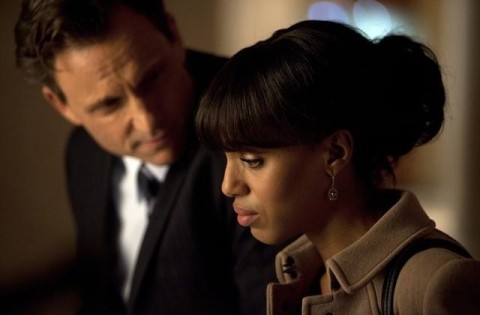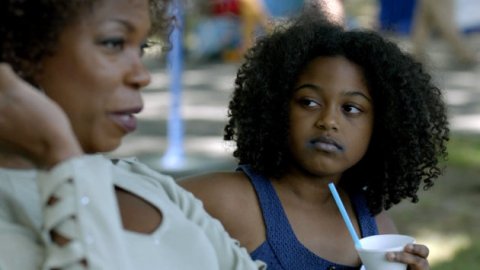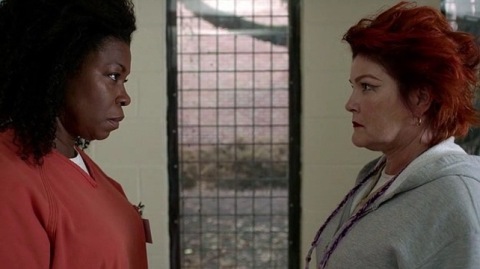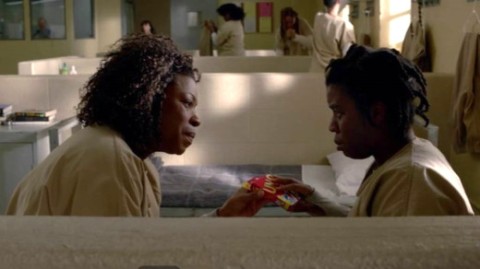I’ve got to maintain my blog silence in order to finish writing this damn book, but I saw Testament of Youth last night and have been spluttering ever since.
Now, this is a very pretty and very sad film. And the first part of the film follows the real-life Vera Brittain’s memoir nicely — in which she fights her way into Oxford University against her father’s wishes, and along the way (against her own wishes) falls in love with her brother’s friend Roland — only to have war break out in 1914. As she remembered it later, the war initially “came to me not as a superlative tragedy, but as an interruption of the most exasperating kind to my personal plans.” She spent the war’s aftermath trying to come to terms with the meaning of that war and the multiple tragedies it unleashed. Testament of Youth remains one of the most powerful and important feminist/pacifist/intellectual reckonings of that era and that generation.
But this film focuses, instead, on how pretty these people were, and how sad it is when someone dies. Other than a brief moment at the end when Brittain (Alicia Vikander) speaks up on behalf of peace and postwar reconciliation at a raucous political meeting, the film skims over or skips everything that really mattered to the real-life Brittain — her relationship with Winifred Holtby, her agonizing efforts to make sense of the war, her political and feminist work — to a postscript that assures us that she found someone else and married in 1925.
Oh, no no no, this film is all heartbreaking scenes at railway stations and all manner of men gazing at Vera longingly. That’s right: instead of a powerful political assessment, this film is simply a woman’s weeper, made for repetition on the Lifetime channel.
You can say that I was ruined for this film because I’d read the book. In fact, my very first induction into the magic of the BBC world of miniseries came in the early 80s when my mom and I sat ourselves down every Sunday night to watch the 275-minute version of Testament of Youth starring Cheryl Campbell. (Does anyone know how I can get that series on a region-1 DVD?) But even if I was a total novice to the subject matter, this film is empty of anything but aesthetic pleasure and pathos.
This should have been the movie for me: a female lead! based on a feminist text! a period drama with great clothes! But no matter how many tears I shed during the screening, I found myself increasingly exasperated during the film’s final third to the point that my jaw dropped when it ended before any of what mattered to the real-life Brittain made it in.
I’ll give it this: the clothes are fantastic. Really, I wanted to run my hands all over those beautiful fabrics. But more problematic: it has the worst male lead ever. Kit Harington as Roland is ![]() .
.
Okay, back to writing things that result in book contracts, promotion, etc. Apologies for going AWOL, friends, but I’ve got to get some work done!
Enjoying the delicious sleaze that is the McDonnell trial? Well, obviously what we need is the TV movie version to clarify it!
Here’s my plan. I’m going to quit my job and focus all my attention on developing the screenplay of the entire case — I think a six-hour TV event on one of the cheesier cable TV channels (Lifetime? SyFy? Cinemax?) will be ideal.
The hardest part is finding a good actor to portray Bob, the Virginia governor who finds himself (allegedly) in a tortured marriage and too poor to play with the Big Money boys, yet also prone to a Christian public sphere in which the state mandates trans-vaginal ultrasounds to women seeking abortion. If this is the real Bob:
Then I’m thinking we can age Matt Damon a bit to portray him on the small screen. Damon has a lifetime of playing morally ambivalent and downright creepy characters (Talented Mr. Ripley, Bourne, The Departed…) in ways that will flesh out the true glory that is McDonnell (okay, we’ll age him a bit):
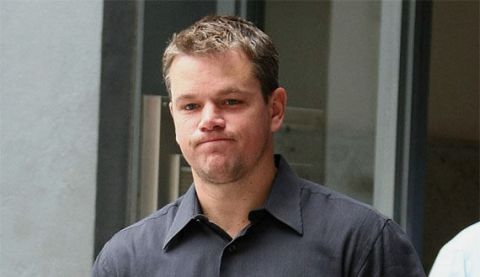 Now that that’s solved, on to the Maureen McDonnell conundrum — which I solved the minute this scandal began to break. How to portray a woman relegated to the sidelines as Bob’s “better half” but without any of the cash to look the part? How to portray the woman who’s apparently taking the fall for her husband — voluntarily or not, it’s not clear — by having his lawyers portray her as the real villain in the case? The real Maureen has had a tough role to play for years now:
Now that that’s solved, on to the Maureen McDonnell conundrum — which I solved the minute this scandal began to break. How to portray a woman relegated to the sidelines as Bob’s “better half” but without any of the cash to look the part? How to portray the woman who’s apparently taking the fall for her husband — voluntarily or not, it’s not clear — by having his lawyers portray her as the real villain in the case? The real Maureen has had a tough role to play for years now:
 So clearly, the ideal actor to portray her is Heather Locklear — yes, the perennially sharp-tongued star of Melrose Place in its glory days of the 90s (as well, apparently, as the 2009-10 reboot of the series which I regrettably missed).
So clearly, the ideal actor to portray her is Heather Locklear — yes, the perennially sharp-tongued star of Melrose Place in its glory days of the 90s (as well, apparently, as the 2009-10 reboot of the series which I regrettably missed).
 I don’t know about you, but I can hardly wait to see this series. And best of all is the casting of Jonnie Williams, the CEO of Star Scientific, the creepy tobacco product-based health tonic company. The real-life Jonnie has a look in his eye that, for me, evokes a combination of an unpredictable Willy Wonka and Frank Underwood from House of Cards:
I don’t know about you, but I can hardly wait to see this series. And best of all is the casting of Jonnie Williams, the CEO of Star Scientific, the creepy tobacco product-based health tonic company. The real-life Jonnie has a look in his eye that, for me, evokes a combination of an unpredictable Willy Wonka and Frank Underwood from House of Cards:
 So clearly Kevin Spacey is my dream version of Williams. What do you think? Will my TV movie version be more worth watching than the real-life tawdryness of the McDonnell’s marriage getting dissected in court every week?
So clearly Kevin Spacey is my dream version of Williams. What do you think? Will my TV movie version be more worth watching than the real-life tawdryness of the McDonnell’s marriage getting dissected in court every week?
Greatest review of “Garden State” ever
15 August 2014
Just do yourself a favor and read Lindy West’s “I Re-Watched Garden State and Will Never Feel Again” over at Jezebel. You will laugh. You will never watch Garden State again.
A snippet:
Natalie Portman’s character claims to be a human being but is actually a genie that exists entirely within the mind of Zach Braff’s dreaming penis. Much has already been written about this, so I will not rehash it in great detail. She tap-dances. She lies, puckishly. She emcees somber hamster funerals. She introduces strangers to her blankie. She figure-skates in a crushed-velvet alligator costume. She wears an epilepsy helmet just long enough to facilitate a wise and bittersweet moment and then never wears it again. She walks over to her record player and opens the lid but doesn’t put a record on just to make VERY SURE you know she has one.
Here are some words that Zach Braff wrote down for Natalie Portman to say throughout the course of the movie:
“My hair’s blowin’ in the wind.”
“Can we have code names?”
“You know what I do when I feel completely unoriginal? [WORST THING EVER HAPPENS] I make a noise, or do something that no one has ever done before. Then I can feel unique again, even if it’s only for a second.”
“If you can’t laugh at yourself, life’s going to seem a whole lot longer than you’d like.”
“I’m weird, man.”
OH, ARE YOU? TELL ME MORE.
If I were, say, 15 years younger I would aspire to such writing, but at my advanced age I think it would be unseemly. Still, I envy her final two sentences with a passion that rivals what I feel for a certain pair of boots that cost an amount I am not allowed to spend on anything whatsoever.
Blecch, Garden State.
It sounds silly now, of course. When someone starts up in ValSpeak, she sounds stupid. But let me explain how wrong and simplistic that is. (I’m going to argue that Riot Grrrl was born of Valley Girl. Just wait till you seen how I get there!)
It didn’t sound stupid if you were younger than, say, 15 in the early 80s, when the Valley Girl accent began circulating on shows like Square Pegs and the classic Moon Zappa song, and thence into schoolyards everywhere. That’s how Kathleen Hanna — revered feminist lead singer of riot grrrl bands like Bikini Kill, Le Tigre, and now The Julie Ruin — explains her adoption of the accent while a pre-teen in Maryland. “We wanted to be the kinds of girls who had credit cards,” she remembers in the terrific documentary The Punk Singer (2013), now streaming on Netflix. To her, it sounded posh, the voice of rich girls.
One of her friends adds that it just goes to show you that you be “just like some Valley Girl and you still can be smart and have feminist ideas and should be listened to.” (Another perk: watching this doc puts the song “Rebel Girl” in your head for days.)
I was never as dedicated to ValSpeak as Hanna — she still talks that way — but I can attest to its appeal back then:
It sounded smart. I know, right? But Valley Girls were fast talkers, quick-witted, opinionated; and they pronounced everything perfectly in those clipped accents. They had a lot to say. Let us not forget Cher (Alicia Silverstone) in Clueless (1995), a second-generation Valley Girl whose speeches regularly inspired applause from her classmates. If you were young, it was easy to hear this as smart — as girls figuring out what they had to say by holding forth.
It was funny. Moon Zappa’s song was a spoof on the dimwitted female mall shoppers out in the deeply suburban San Fernando Valley (much farther from LA than you might imagine if you’re not from there) — and I’m pretty sure we all understood that. But those who heard this only as mocking of the girls were missing something. To me it sounded self-mocking, with all those Ohmigod!s and I’m so sure!s. Girls talked this way in part because they knew they were being funny, and they got a charge from being part of the fun.
It was a dialect unique to girls. And therefore it became a part of girl culture — one of the many ways that girls created a world unto themselves. Sure, it had tinges of sameness and uniformity, but different girl groups innovated endlessly on its basic elements, always developing new ways to speak to each other and to cloak their girl-talk from outsiders.
(I never heard the Valley Guy version of this talk in the same way; it lacked the private club aspects of Valley Girl talk. But maybe that’s because I wasn’t a part of those clubs.)
It allowed you to do fun things with your voice. Valley girls ran the gamut of the vocal scales; just a single Ohmigod! required the speaker to cock one’s voice up a couple of octaves midway and then allow the voice to collapse back to earth of its own weight. The accent is partly so distinctive not for what girls say than for the kooky musical sound of their rambling sentences, like a bouncy New Wave pop song of that era. Doing that stuff with your voice required practice, just like learning to dance like Belinda Carlisle of the Go-Gos.
The documentary about Kathleen Hanna makes a point of discussing her Valley Girl accent because it seems incongruous — how is it that such a diehard feminist — a woman who scrawled INCEST on her chest, screamed into the microphone, sang about sexual abuse, and changed the masculine culture of those punk nightclubs — could speak in a way that undermines the seriousness of her words? After all, long ago I learned to stop talking that way in order to be taken seriously.
But that stereotype has been twisted by time and by the ongoing cultural sense that anything girls do must be stupid. Valspeak wasn’t just a marker of stupid girls saying stupid things. Nor was it a supreme moment of girl stupidity that had to be repudiated by the Riot Grrrls of the 90s.
Let me say something controversial: Riot Grrrl was a movement that stood on the shoulders of Valley Girl. With Valley Girl, we learned to talk — quickly, smartly, to each other. It was of a piece with the dribs and drabs of female rock music of the era (The Pretenders, Joan Jett, Pat Benatar, the Go-Gos, Blondie, Annie Lennox, Siouxie Sioux, etc.) that had a lot to say about being female.
Could Hanna’s overt feminism have been far behind?
Sigh. The only downside of watching The Punk Singer is realizing how far we’ve fallen since the glory days of Riot Grrrl. I ♥ Hanna. Rebel girl, you’re the queen of my world.
This is Lorraine Toussaint as Yvonne “Vee” Parker. We might call her a new character in Orange is the New Black‘s second season, but she’s well-known to two of Litchfield’s current inmates… for complicated reasons. She is the best female antagonist I’ve ever seen, and one of the best antagonists ever.
To Taystee (Danielle Williams), Vee is the foster mother who finally gave her a home. Sure, that home was the locus of a powerful drug corporation. But Vee knew how to inspire loyalty and a sense of family — and we can see her use exactly the right strings to pull Taystee back, to transform her into the loyal soldier she used to be before prison.
In flashbacks we learn exactly how Vee has earned such loyalty from Taystee: by providing exactly that feeling of belonging and family — as well as just the right dose of race pride — that her life lacked beforehand. Moreover, Vee is the best possible “mother”: smart, powerful, admirable. The fact that she runs a drug empire is incidental to her maternal effects on the lonely Taystee.
Once Taystee is on board, Vee pursues the loyalty of a small group of other young Black women to build her prison “family” — using a variety of the same techniques carefully calibrated to each woman (maternal gentleness, tough love, gestures to racial unity and vague promises of uplift and power). But not Taystee’s gay best friend Poussey (Samira Wiley, whom the New Yorker‘s Emily Nussbaum aptly describes as “radiant”). Vee persuades Taystee to join in the exclusion and demonization of Poussey, a mean-girl process so real and devastating that I almost couldn’t watch those scenes.
Red (Kate Mulgrew) also has a history with Vee, but in her case it goes back to earlier prison days as competitors for control of the prison’s black market. Witnessing Red’s anxiety about talking to the leonine Vee for the first time gives us an insight into her character that we hadn’t seen before: for the first time in years, she worries that her aging will lead Vee to sniff out her weakness. In anticipation, she visits Sophia’s salon to amp up her fierceness.
And yet when they meet, they embrace warmly, like old friends.
Indeed, it is Vee’s capacity to convey warmth and insight that makes her so powerful, and so capable of deception. Witness her effect on the perpetual outsider, Suzanne “Crazy Eyes” (Uzo Aduba). She insists on calling her Suzanne. With a few correcting glances from Vee, Suzanne stops undermining herself and her mental stability, and speaks with new confidence. Under to heat of that seeming maternal affection and guidance, Suzanne glows like a light bulb and happily serves as Vee’s henchman, the muscles to Vee’s brains.
With everything else going on for me this summer, it took me forever to finish Season 2 — but throughout I marveled at the manipulative twists and maneuvers of Vee, who is the best antagonist I’ve seen in FOREVER. And it’s partly such a great character because she’s a woman who has learned to use people’s assumptions about her to her advantage. Think about it: we love a good bad guy — Alan Rickman in Die Hard, Heath Ledger as the Joker in The Dark Knight, Kevin Spacey as the horrifically Bible-obsessed baddie in Se7en — but when was the last time you saw a female antagonist worth remembering, for all the reasons why women learn how to extract power and manipulate others using their femininity?
But don’t get me wrong: this is not just a portrayal of a great female antagonist. This is the best antagonist in years, full stop.
Feast your eyes, friends.
Greetings from summer
13 June 2014
 This episode aired weeks ago, but I only caught up with it last night. And my mind is still reeling.
This episode aired weeks ago, but I only caught up with it last night. And my mind is still reeling.
The TV series Louie (2010-present) does a better job of showing us the uncomfortable, complicated aspects of dating (that amazing episode in which he sort of falls for the guy in Miami!) than almost anything else I’ve seen. But no matter Louis CK’s shlubbyness, he dates women who look like Parker Posey:
 So consider me interested in this episode, “So Did the Fat Lady,” when a funny fat woman flirts with him and asks him out, and Louis turns her down. Nota bene: he spent the first part of the episode with a buddy on a “bang-bang” — that is, they ate a full meal together at one restaurant, then departed to another restaurant for another full meal. It is the nadir of self-destructiveness by a couple of fat guys; they hardly speak as they eat themselves stupid during this bang-bang; they’re not doing it for “fun.”
So consider me interested in this episode, “So Did the Fat Lady,” when a funny fat woman flirts with him and asks him out, and Louis turns her down. Nota bene: he spent the first part of the episode with a buddy on a “bang-bang” — that is, they ate a full meal together at one restaurant, then departed to another restaurant for another full meal. It is the nadir of self-destructiveness by a couple of fat guys; they hardly speak as they eat themselves stupid during this bang-bang; they’re not doing it for “fun.”
Yet when Louis and Vanessa (Sarah Baker) walk along the riverfront and he offers her a half-hearted, “You’re not fat …”, she lights into him.
“On behalf of all the fat girls, I’m making you represent all the guys,” Vanessa says. “Why do you hate us so much?” And for an amazing seven minutes, she lets him have it. You should watch the full episode for the whole setup, but the scene is available here.
Louie loves to make its viewers uncomfortable; the whole series puts its protagonist in the middle of the strangest, most cringe-making scenes it can cook up. This one is no exception. Vanessa doesn’t let up, phrasing her complaints in a way that make us confrontation-averse types watch our sympathies ricochet between her and Louie. She lets him have it, but not without forcing you to see her perspective. It’s a genius rant.
One could complain (and they have) that the show’s creator, Louis CK, wrote the whole thing. But I’m not sure that line of attack is worthwhile. In fact, I have an abiding fascination with other moments in history when male writers recount amazing moments when they found themselves absolutely bawled out by a woman. One of my favorites is Captain John Smith’s account of meeting Pocahontas in London in 1617 and having her rip him a new one for failing to observe the rules of kinship cemented during their time in Virginia. Smith recounts her speech in full, which ends condemning the English for their propensity to lie.
 I’m still not sure how I feel about the end of the scene, as the two defuse the tension. But what an amazing thing to see on TV. What did you think?
I’m still not sure how I feel about the end of the scene, as the two defuse the tension. But what an amazing thing to see on TV. What did you think?
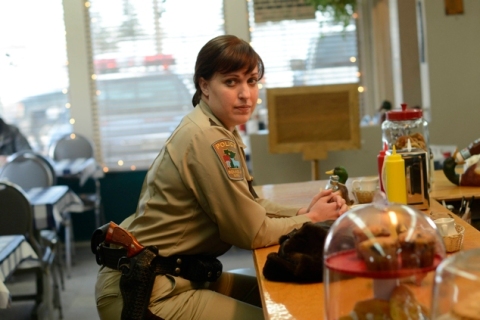 At first she seems like she’s going to be just another part of the kitschy Minnesota social landscape as created by the writers of Fargo — a series that uses the Coen Brothers’ 1996 film as a jumping-off point (and visual touchstone) for a different story, which they assert is true. The show tricks you: at first, the character of Molly Solverson seems neither as central nor as astute a detective as she becomes by episode 2 or 3. But by that time, you’ve sort of fallen in love with her.
At first she seems like she’s going to be just another part of the kitschy Minnesota social landscape as created by the writers of Fargo — a series that uses the Coen Brothers’ 1996 film as a jumping-off point (and visual touchstone) for a different story, which they assert is true. The show tricks you: at first, the character of Molly Solverson seems neither as central nor as astute a detective as she becomes by episode 2 or 3. But by that time, you’ve sort of fallen in love with her.
Tolman is heavier than most TV actresses — by which, god knows, she probably wears a women’s size 10 (gasp!) — and prone to opening her gorgeous blue eyes just about as wide as they’ll go. She alternates observing a scene with an open mouth, and pursing that mouth in thought and perhaps a little judgment. All of which means that as you start to fall in love with her, her modesty, and her obsessive, perceptive views of the people and crimes around her, you realize that Tolman is not playing this for laughs even as she is trained as a comedian. Rather, we enter into the series via those beautiful eyes and connect to it through her combination of shyness, naïveté, and determination. She brings a soft persuasion to all her scenes, which is hard to do in a room full of Big Actors.  The show is getting attention for all its male stars — Billy Bob Thornton as the riveting, mercurial hit man (really: he’s wonderful here); Martin Freeman hamming it up with an implausible Minnesota accent as the hapless Lester Nygaard; the terrific Bob Odenkirk as the dense new chief of police; Colin Hanks as a singularly unlucky Duluth police officer; and Adam Goldberg as a competing hit man who memorably delivers half his lines in American Sign Language.
The show is getting attention for all its male stars — Billy Bob Thornton as the riveting, mercurial hit man (really: he’s wonderful here); Martin Freeman hamming it up with an implausible Minnesota accent as the hapless Lester Nygaard; the terrific Bob Odenkirk as the dense new chief of police; Colin Hanks as a singularly unlucky Duluth police officer; and Adam Goldberg as a competing hit man who memorably delivers half his lines in American Sign Language.
What I’m saying is that our attention is — and should be — directed at Tolman, who is the real reason why the series works. Freeman’s acting is starting to grow on me, even though I still think he overacts his way through every scene; I don’t understand why Colin Hanks gets so many great roles (well, maybe I do understand); and I feel slightly peeved at the show’s insistence on getting so many yuks from Minnesota lingo and way too many characters with low IQs. But I’ll keep watching for Allison Tolman alone. She is a major discovery, and a major talent. Damn.
“Veronica Mars” (2014) nine years later
4 June 2014
I loved Veronica Mars, that So-Cal noir series that ran between 2004 and 2007. (Especially the first two seasons.) Her bitterness was so vividly explained. The class battles between the haves and have-nots always peppered the show, even as it cynically reminded us (as good noir does) that the wealthy and privileged have the means to insulate themselves against justice no matter how much Veronica tried to fix it. The series was also funny, with wonderful characters (Vinnie Van Lowe, the comic genius of Dick Casablancas). It ended too soon, and remains worthy of re-watching even now.
Veronica (Kristen Bell) was razor-sharp — that nose, that jawline, that cutting sense of humor — but the show was always fundamentally about her sadness, her loneliness. Perfect noir. Perfect for those of us for whom high school remains weirdly mythopoeic.
Considering that sharpness, you couldn’t be surprised by Bell’s post-Veronica career as Veronica’s opposite: a privileged mean girl (Heroes, Forgetting Sarah Marshall, Parks and Recreation, the narrator’s voice in Gossip Girl). Which made me realize that her capacity for bitchiness always underlay her success as Veronica, too — Veronica was the girl who directed her meanness at the mean girls, overprivileged douchebags, and corrupt cops who made it so hard for the rest of us.
Now that we have a full-length feature film — made nine years later, and famously with millions of fan-driven Kickstarter dollars — does it still work?
Is this the kind of movie that anyone can enjoy, not just fans of the series?
I doubt it, especially if you’re paying for it. Wait till it’s on TV and, who knows? Maybe it’ll propel you to the series after all.
Will fans of the series be happy with this film?
Absolutely (more details below). But it feels like a TV show, not a film.
 This film offers many pleasures — not least the way it managed to find every relevant actor to reprise his/her role from the series. The awful Madison Sinclair (Amanda Noret), the queen mean girl; the stoner Corny (Jonathan Chesner, whose appearance made me squeal with delight); even Veronica’s temporary flame on the force, Leo D’Amato (Max Greenfield) — not to mention the most crucial people, including Veronica’s father (Enrico Colantoni), Weevil (Francis Capra), and of course Wallace (Percy Daggs III) and Mac (Tina Majorino). Lucky that the plots pivots around Neptune High’s 10-year high school reunion, because otherwise you’d shake your head at the crazy confluence of familiar faces.
This film offers many pleasures — not least the way it managed to find every relevant actor to reprise his/her role from the series. The awful Madison Sinclair (Amanda Noret), the queen mean girl; the stoner Corny (Jonathan Chesner, whose appearance made me squeal with delight); even Veronica’s temporary flame on the force, Leo D’Amato (Max Greenfield) — not to mention the most crucial people, including Veronica’s father (Enrico Colantoni), Weevil (Francis Capra), and of course Wallace (Percy Daggs III) and Mac (Tina Majorino). Lucky that the plots pivots around Neptune High’s 10-year high school reunion, because otherwise you’d shake your head at the crazy confluence of familiar faces.
 But the real reason Veronica has returned to town is that once again, Logan (Jason Dohring) finds himself accused of murder. They haven’t seen each other for nine years, and Veronica has remained with her public-radio boyfriend Piz (Chris Lowell) ever since. On the verge of landing her first post-law school job in New York as a corporate lawyer, she agrees to help Logan find a defense lawyer. Like, for one weekend only. Like she has that kind of self-control.
But the real reason Veronica has returned to town is that once again, Logan (Jason Dohring) finds himself accused of murder. They haven’t seen each other for nine years, and Veronica has remained with her public-radio boyfriend Piz (Chris Lowell) ever since. On the verge of landing her first post-law school job in New York as a corporate lawyer, she agrees to help Logan find a defense lawyer. Like, for one weekend only. Like she has that kind of self-control.
To his credit, Logan seems to have changed. He claims it’s his duty in the Navy — whatever it is, he seems unusually soft-spoken and lacking in the sociopathic tendencies that peppered his long history with Veronica. He now seems so self-possessed, almost like a stand-up guy. On the other hand, because of his past, no one really doubts that he might have the capacity to murder someone.
 No wonder Wallace and Mac can see trouble around the corner. “In case it slipped your mind, Piz is the one without the baggage and the drama,” Wallace tells her, while Mac chimes in: “I will say this for him, he almost never gets charged with murder.”
No wonder Wallace and Mac can see trouble around the corner. “In case it slipped your mind, Piz is the one without the baggage and the drama,” Wallace tells her, while Mac chimes in: “I will say this for him, he almost never gets charged with murder.”
“Just one of the things I love about Piz: no drama,” Veronica throws back at them. No one believes her.
Sure enough, before too long she has dug out her old dark, high-school era clothing for nighttime sleuthing, has scented out good reasons to believe a conspiracy is afoot, and she finds herself in Logan’s convertible, lit by the water and the neon and the jonesing for that crazy connection — the relationship that was epic, spanning years and continents, lives ruined, bloodshed….
As she tries to resist, she likens Logan’s appeal to an addiction she has broken. Or maybe she’s still in recovery. “Do I get a chip for this? Pouring the drink, swishing it, smelling it, leaving the bar without taking a sip. Is this what getting clean feels like?”
 Serious question: will this calm version of Logan still be as good a kisser? That was a primary reason to enjoy his appearance all those years ago, and I have my doubts about this one. Tag line: he may have been a sociopath, but a damn good kisser.
Serious question: will this calm version of Logan still be as good a kisser? That was a primary reason to enjoy his appearance all those years ago, and I have my doubts about this one. Tag line: he may have been a sociopath, but a damn good kisser.
I have only one complaint about this film (besides the kissing question): that it is a film and not a two-hour pilot for a briefly revamped series with a clear end date (say, 12 episodes). Director Rob Thomas certainly left enough openings for future work — the corrupt police force, etc. And with her knowledge of the law, this Veronica might be even more of a force to be reckoned with.
But I also have a lingering sense that this Veronica won’t take, and the important problem is the mythopoeic nature of high school in TV series. Something about a teen detective navigating poisonous social politics and corruption works in a way that a 30-year-old who’s passed the bar will not. As much as I enjoyed every minute of this film, with its cameos and repartee and that revived thing between Veronica and Logan: maybe it’s time to let it go, to let this be our swan song, that one-night/ high school reunion return to old friends, old flames.
Seriously, though: Piz? surely she could have found someone else by now. That’s just sheer laziness, Veronica. Think about the kissing.





